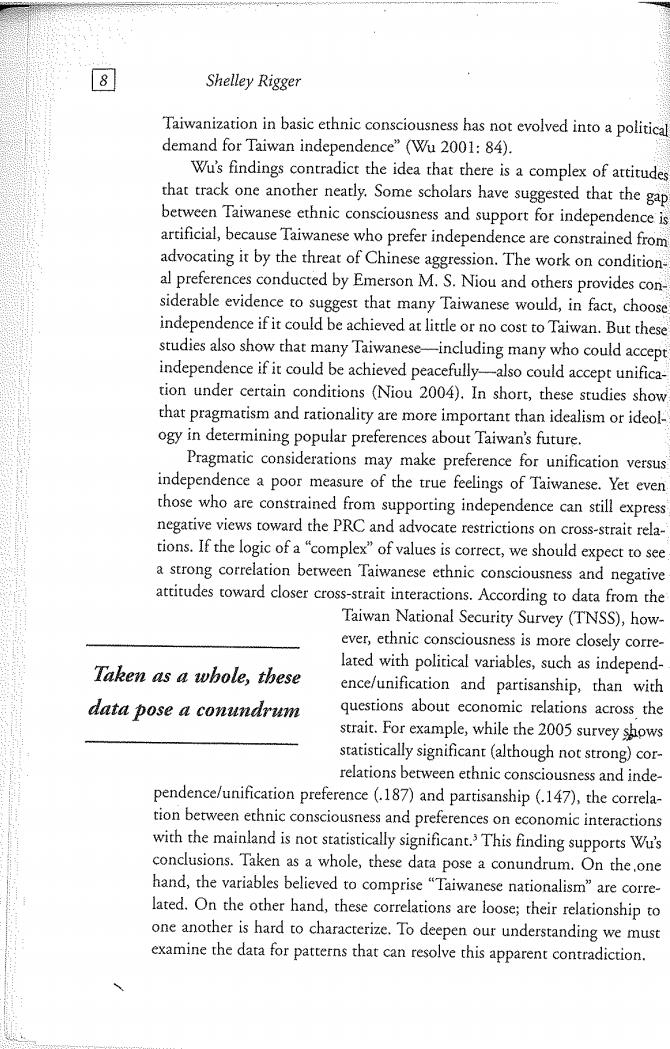正在加载图片...

8 Shelley Rigger Taiwanization in basic ethnic consciousness has not evolved into a political demand for Taiwan independence"(Wu 2001:84). Wu's findings contradict the idea that there is a complex of attitudes that track one another neatly.Some scholars have suggested that the gap between Taiwanese ethnic consciousness and support for independence is artificial,because Taiwanese who prefer independence are constrained from advocating it by the threat of Chinese aggression.The work on condition al preferences conducted by Emerson M.S.Niou and others provides con- siderable evidence to suggest that many Taiwanese would,in fact,choose independence if it could be achieved at little or no cost to Taiwan.But these studies also show that many Taiwanese-including many who could accept independence if it could be achieved peacefully-also could accept unifica- tion under certain conditions (Niou 2004).In short,these studies show that pragmatism and rationality are more important than idealism or ideol- ogy in determining popular preferences about Taiwan's future. Pragmatic considerations may make preference for unification versus independence a poor measure of the true feelings of Taiwanese.Yet even those who are constrained from supporting independence can still express negative views toward the PRC and advocate restrictions on cross-strait rela- tions.If the logic of a"complex"of values is correct,we should expect to see a strong correlation between Taiwanese ethnic consciousness and negative attitudes toward closer cross-strait interactions.According to data from the Taiwan National Security Survey(TNSS),how- ever,ethnic consciousness is more closely corre- Taken as a whole,these lated with political variables,such as independ- ence/unification and partisanship,than with data pose a conundrum questions about economic relations across the strait.For example,while the 2005 survey shows statistically significant(although not strong)cor- relations between ethnic consciousness and inde- pendence/unification preference(.187)and partisanship (.147),the correla- tion between echnic consciousness and preferences on economic interactions with the mainland is not statistically significant.This finding supports Wu's conclusions.Taken as a whole,these data pose a conundrum.On the.one hand,the variables believed to comprise"Taiwanese nationalism"are corre- lated.On the other hand,these correlations are loose;their relationship to one another is hard to characterize.To deepen our understanding we must examine the data for patterns that can resolve this apparent contradiction